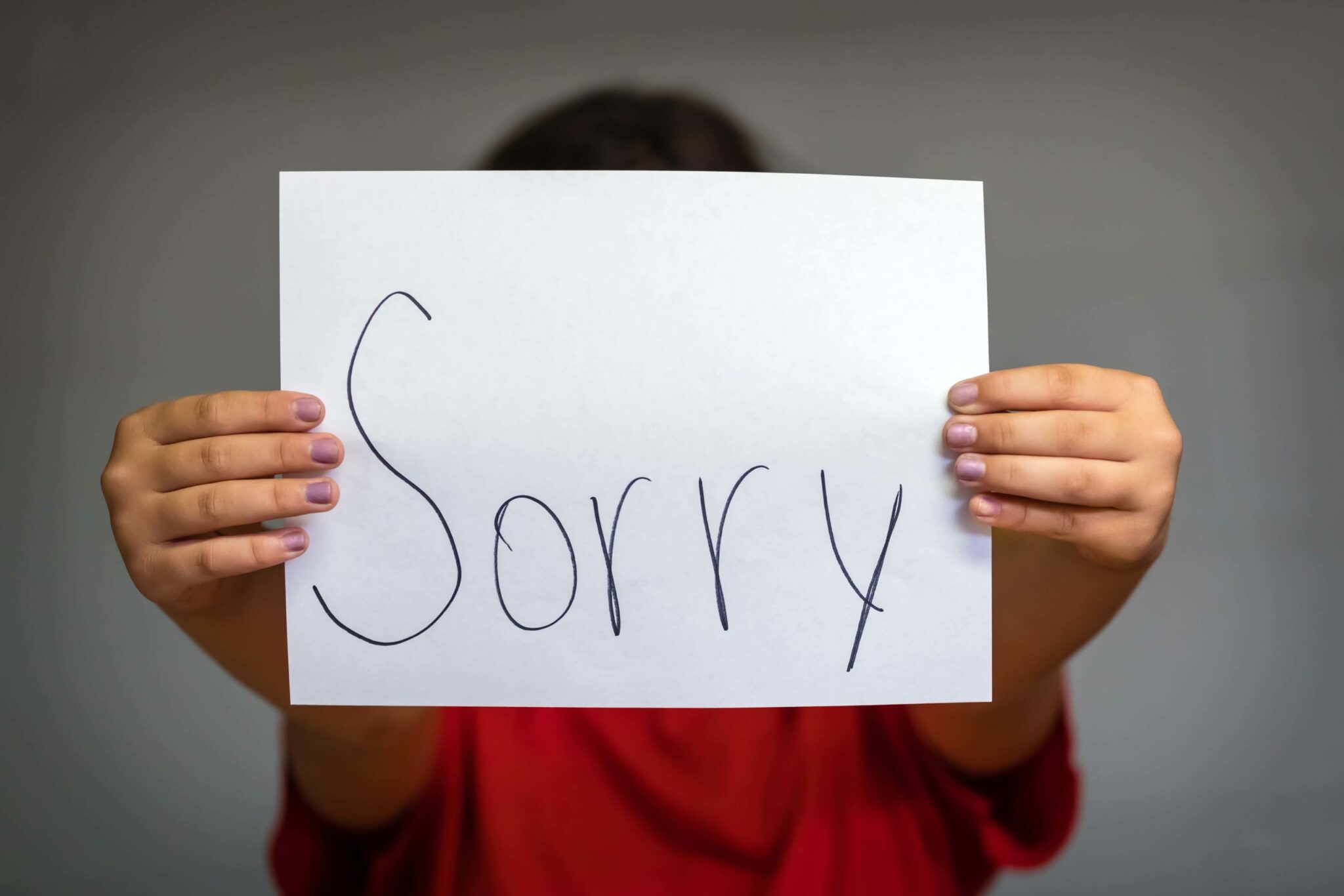Why you Shouldn’t Make Your kid say They’re Sorry

Get kids in a room together and trouble is sure to follow. Whenever a child misbehaves, many parents’ natural response is to insist that their child apologize for their actions. The idea is that apologies teach good manners and force children to take responsibility for their actions. But many experts now say that forcing your child to say “I’m sorry” doesn’t do much of either.
“Forcing a child to apologize does not teach social skills” says Bill Corbett, a parent educator, author, and producer/host of the parenting TV show Creating Cooperative Kids. Young children don’t automatically understand why they have to apologize, and if a parent forces a child to say they are sorry, “It could delay the child’s natural acceptance” of apologizing.
In addition, insisting on the apology will do more to embarrass your child than give him or her a lesson on empathy, says Allyson Schafer, a psychotherapist, parenting expert and author of Ain’t Misbehavin’. “Step into the child’s mindset and emotional state. You can imagine that any empathy that they were feeling because of their wrongdoing just flew out the window as their parents put the spotlight on them and their screw up, which is now on public display.”
The result is usually an insincere apology and nothing learned by the child. Instead, parents should model appropriate behavior instead of turning it into a showdown, says Howard J. Bennett, MD, a pediatrician, author, and clinical professor, George Washington University School of Medicine. “Make eye contact with the victim and say something like this: ‘I’m so sorry, Henry. We don’t allow hitting in our house. I don’t know why Charlie did that to you.’ You should ignore your child for a moment while you make sure that Henry is feeling better. Children learn by experiencing the consequences of their actions. In this example, you ignored your child and gave positive attention to the one who was mistreated.”
And if your child engages in this type of behavior repeatedly, you should warn him or her that they will have to leave the park (or wherever you are) if it happens again, says Dr. Bennett. “It’s best to pair consequences with the action they are designed to discourage. For example, it’s more effective to go home (and stop the fun activity) rather than taking away dessert later that day.”
Sources:
- Huffington Post, Don’t Force Kids to Say They’re Sorry
- Allyson Schafer, Why Parents Shouldn’t Force Their Kids to Say “I’m Sorry.”
- Yahoo Shine, 5 Things Parents Shouldn’t Say to Their Kids.
Powered by Bundoo®










